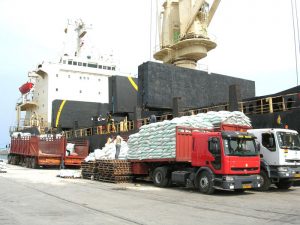Newmont Africa has announced that, in the first quarter of 2023, its Ghana operations (Ahafo South and Akyem mines) paid a total of GH¢843.72 million in taxes, royalties, and levies to the Government of Ghana, through the Ghana Revenue Authority (GRA), Forestry Commission, and Ministry of Finance.
This amount is broken down into Corporate Tax of GH¢514.57 million; Minerals Royalties of GH¢197.06 million: GH¢78.23 as Pay As You Earn (PAYE); GH¢42.31 as Withholding Tax; and GH¢11.55 million as Forestry Levy.
“Fulfilling our obligations in terms of statutory payments, and being transparent about what we pay, are in line with our commitment to regulatory compliance and good corporate governance,” said David Thornton, Regional Senior Vice President, Newmont Africa Operations.
Newmont Africa’s operations in Ghana have a strong tax compliance history and received multiple taxpayer recognitions from the Ghana Revenue Authority.
“It is important, especially in these challenging times, for companies to honour their obligations to the state, as well to their various stakeholders, through direct payment of their taxes and investment in social programmes,” he added.
Apart from the taxes, royalties, and levies that go directly to government towards the growth and stabilization of the economy, Newmont Africa also focuses on stimulating economic development in the local communities that host the mining operations, through a range of programs and projects that deliver measurable outcomes.
Acknowledging the key role that road infrastructure plays, particularly in farming communities, Newmont Africa’s operations in Akyem and Ahafo have both funded critical road infrastructure, working through the Ministry of Roads and Highways.
The mines’ investment in skills acquisition and sustainable livelihood programmes also ensure that local community residents are equipped with employable skills that are needed in the extractive and construction industries.






